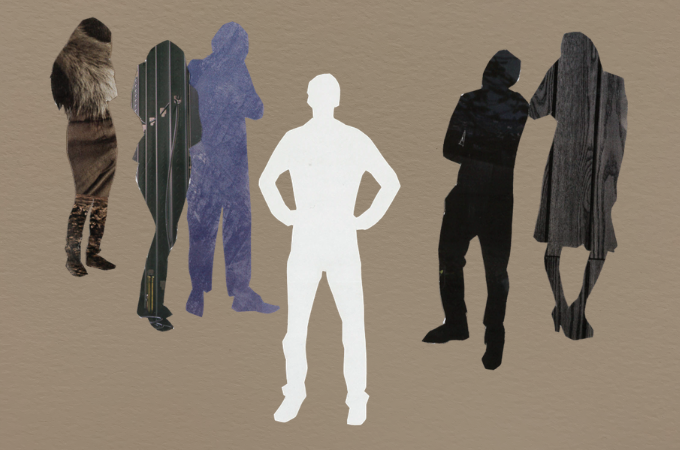
Self-Flagellation—“the action of flogging oneself, especially as a form of religious discipline; excessive criticism of oneself.”
“Who is that in the ring? And what in heaven’s name are they doing?” asks an African Nairobi-based scholar. We are looking at a white Africanist, dressed in green, yellow and red boxing trunks in a boxing ring.
“Can’t you tell? They are shadow-boxing, preparing for the big fight,” I answer.
“What fight?” the African scholar asks.
“Don’t you know? How can you not know? This is the big fight. They’re getting ready to box white privilege.”
“Again? I thought white privilege lost the last bout? I thought they duked it out in the 1960’s, 70’s, remember, the 1996 ghettoizing African history debates…?”
Small beads of sweat on my forehead – how do I explain it?
“The last match up was in 2018 at the African Studies Conference …it appears it was a draw…”
“Wait a minute, I was there at the 2018 conference. White privilege lost – I saw it with my own two eyes – there was a celebration – remember the tears of joy? The post-white-privilege celebrations?” the NBO-based scholar, now more concerned, asks.
“Yes, we cheered and toasted…Just let me know if you want to watch the re-match of the rematch of the rematch via zoom – nothing like a boxer fighting their shadow…”
“I get it… the white privilege African Studies Industrial Complex – but what does it have to do with us?”
“Your guess is as good as mine – So you are going to watch the rematch of the rematch, or what?” I finally ask, aware the conversation is not going anywhere.
“Eish, we are in the middle of a pandemic…nah, not me – let them call when they are done…,” the NBO scholar finally says.
*****
If discussions around white privilege in African knowledge production were a cartoon, or a comedy sketch, that to my mind is how they would read. The white ally keeps pointing and tearing at their skin. It’s a spectator sport now, only to reveal whiteness centering itself. It is a comedy of errors – white Africanists still trying to resolve white privilege and racism in the study of a continent that has been moving on.
A good example is Professor Jean Alman’s Africa is a Country essay titled “Academic reparation and stepping aside: Reflections from a former President of the African Studies Association (ASA), the largest African Studies association globally, on the future of the discipline.” She concludes the essay with “this now, might be the moment for enacting a kind of personal academic reparation: don’t just move the furniture around to make extra room … step aside.” But it all does beg the questions – who wants to be in that room? Why? And, what is in the room?
And please note this essay itself is a reflection on the aftermath of her 2018 anti-white privilege ASA keynote, the 2018 Presidential Lecture #HerskovitsMustFall? A Meditation on Whiteness, African Studies, and the Unfinished Business of 1968.
Here is my understanding of the issue at hand. African Studies as a discipline is not the problem, African Studies as an ideology is the problem. We should not conflate the two. Disciplines in African Studies range from the anthropological, historical, philosophical to the scientific. The ideology, on the other hand, shapes the nature, scope and intent of the disciplines.
White privilege is therefore not the central problem, it is just one of the expressions of a conservative ideology that assumes the continent and its peoples can and should be studied for the benefit of the western student and scholar, that knowledge is a commodity to be extracted from the continent to benefit the western student and scholar.
As an ideology, African Studies makes the idea possible that African Studies Association as an organization can be benevolent and extend its hand to uplift and amplify Black African scholars. So the ASA, centered in the United States, can offer conference travel grants to Africa based scholars.
It moves from the principle that western study of Africa is the gold standard of knowledge production and Africa- based scholars can be given legitimacy by being published in African Studies journals based in the west.
And that western-based academic presses can in good academic Christian spirit publish Africa-based scholars, but for the western academic market.
That knowledge can be extracted from African cultures and languages but only really counts when it is stored in European languages.
That African American and Global Black Studies are separate fields – and should not contaminate the study of the “real’”and truly black Africa.
That scholarship is, can, and should be divorced from any form of advocacy. Study and write about Nelson Mandela, or Wangari Maathai, or your favorite icon, but do not bring the disease of political activism into your scholarship.
In short, African Studies as a discipline is led by a conservative ideology, and it has been a parasitical relationship where the parasite presents itself as the host, and the host as the parasite. And it amounts to a self-perpetuating and self-rewarding African Studies Industrial Complex.
Covid-19 and the consequent lockdowns made this plain and clear — that the problem with African Studies is one of ideology and relevancy rather than becoming a more efficient and racially equal disciplined machine. In the US, we went into lock down —no more jetting into convention centers or more accurately, no more hustling for visas, airline tickets, discounted conference fees for Africa-based scholars, etc. Those on the continent quickly created alternative spaces, in addition to all the other initiatives and intellectual projects historically happening on the ground.
Just from my vantage point of view, I saw a group of African writers, led by Zukiswa Wanner, lay down the foundations and build Afrolit Sans Frontières. Brittle Paper just recently recognized Wanner as the African literary personality of the year. I saw Lolwe Magazine and Doek! (the latter named by Brittle Paper as the platform of the year) come to fruition. I attended an African Studies Association of Africa Conference at the Nairobi University Department of Literature, which celebrated 50 years of decolonization and where activists and scholars got together to talk about radical global black synergies. There was a Kiswahili literature conference at University of Nairobi, and so many others.
And these are just the ones that just happened to cross my Zoom desk. I am sure a well curated list of the academic and literary happenings on the continent would number in the hundreds, if not thousands. Not a single person – this I should add – mentioned the ASA and white privilege. People are at work, building and talking to each other. The self-flagellating discussions about white privilege and African Studies were outside the radar of the urgent work that was being done.
If the question is one of ideology and relevancy, what can African Studies and affiliated organizations in the west do differently? I know…I sound earnest and that is because I am. There is a lot at stake. At its most extreme, the discipline and its ideology produces a personage like Jessica Krug. She studied history in a mostly white department, was hired and promoted by a mostly white committee, and published by a mostly white press.
And at its most benign, at stasis, African Studies as ideology functions like code that keeps producing Africanists (black and white) wearing intellectual black face. But the work itself, the need to study African histories, philosophies and sciences, to center Africa as place of knowledge production, has been important and remains urgent. What is at stake here is the difference between a Basil Davidson or Caroline Elkins who write a “true African peoples histories” and a Philip Curtin who argues that letting black people into black academia will ghettoize African Studies.
Where do we start?
Well, by a great humbling of the mostly white and North American “largest African Studies association globally.” Rename the ASA to ASA – USA in the spirit of ASA-UK. We are in a ridiculous situation (akin to saying African Literature in African Languages as opposed to simply African Literature and then have African Literature in English or French etc.) where we have to have Africa Studies Association – Africa.
With that, two things can happen. ASA-USA then remains what it has always been, a largely north American entity unburdened of Africa centered “activism.” Or it can then find news of engaging with ASA-Africa as an equal partner. A move from an academic benevolence to democratizing the production and access to knowledge. It is not a question of trickle-down reparations but a redistribution of power.
African Studies the discipline can require that any field work and dissertations, theses, essays and books be accessible to those who are the subjects, in the languages from which the knowledge is sourced from. Learning an African language in US universities has been to allow mostly white Africanists to extract knowledge without giving it back. ASA as an organization can organize grants to fund the production of knowledge in the languages that knowledge has been sourced from.
University presses in the west that publish African Studies books should as a matter of principle avail the galleys and proofs to Africa-based publishers without charge. And vice versa.
African Studies-related programs can commit to holding conferences and other professional development meetings on the continent. Enough with the travel grants and visa application humiliations!
African Studies can and should be in a symbiotic relationship with Africana and Black Studies Centers.
In the 2021 ASA conference, you can be sure there will be papers with titles like “Black Lives Matter: A History for Black Consciousness”; “The Pandemic and the African Writers: The Internet is a Village”; “#ENDSARS and #BringBacktheGirls: It takes a Hashtag to Raise a Child.”
The question though is, where were you when we were we? This is a question that came up during a zoom Afro Lit party/meeting about who speaks for whom and when.
Where were you, when we were we?



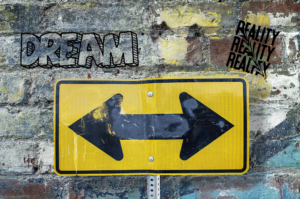

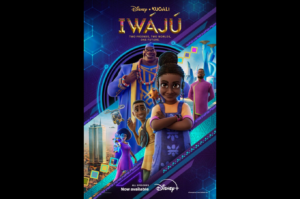
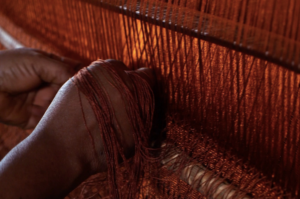
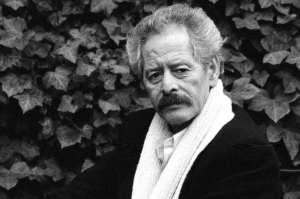

Patrice Nganang March 07, 2021 11:58
I am not sure I accept the dichotomy between on the one hand, 'African Studies as a discipline led by a conservative ideology', and 'Africa centered “activism”' on the other hand. My own experience has been a fairly socially conservative Africa, and a fairly politically liberal white Africanist. I know, I am using 'Biodun Jeyifo's distinction here, but I found it convincing. Self-flagellation is a classical chapter of liberalism, anyway. I find this article surprising, though, because it is written at the moment when African studies department are not exactly thriving in the US and elsewhere in the West - in fact, closure is the name of the game, and retrenchment here and there. And this happens when at the same time, other area studies (Asian, Asian American, Latin American), are thriving. In fact I think at its core, this article is dated - the date is pre-1980, when storming the West was in the forefront of our parent's mind, given the collapse of African economies. But Africa hasn't stopped being socially conservative. It still remains the place where as an African writer and scholar I intentionally refused to start my academic life during the nineties. It has changed a lot, people say, and yet it is the place that jailed me in 2017 - because of activism. And it is the place where people like myself are being burned and killed, because they speak English, and not French. My question is: what Africa is my friend Wa Thiong'o talking about?